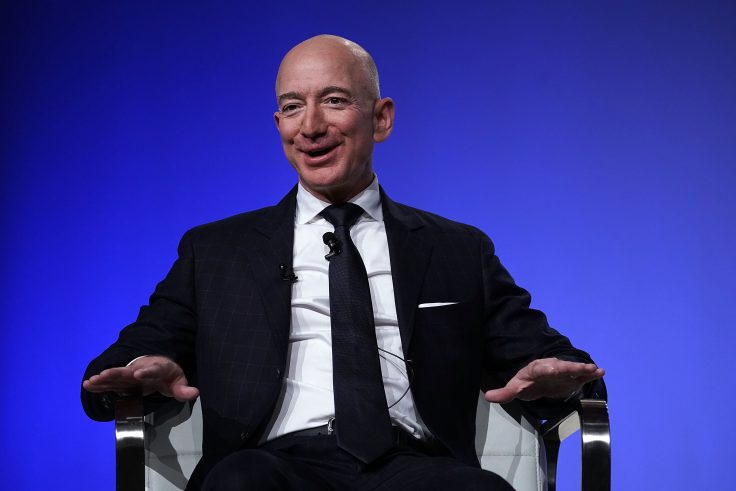In 2016, Amazon faced a major decision as copycat listings and shoddy products began to flood the marketplace. According to Brad Stone in Amazon Unbound, company execs asked founder Jeff Bezos whether they should "prioritize the sale of high-end clothing … or should it favor low-end generic apparel and private label products across Amazon.com and via the Amazon Marketplace." Bezos answered, "I think we should target everybody who wears clothes."
That decision led to a massive influx of Chinese products, undercutting American prices by mass-producing clothing and gadgets designed to fall apart. As Amazon’s system relies heavily on user reviews, the move also created a cottage industry of selling positive reviews in exchange for free products. (This author and myriad college students in need of cheap string lights and socks are intimately familiar with the practice.)
Curiously, Stone sees this as a good thing. He quotes an Amazon executive who traveled to China and saw firsthand the mountains of low-cost product: "We realized that people charging ten to fifty times what products actually cost to make, based on a brand name, wasn’t going to last and consumers would be the winners."
Amazon Unbound is an insightful corporate history, but it’s really about Jeff Bezos—his neuroses, his brilliance as a corporate leader, and his long evolution into an American Caesar, willing to do battle with powerful political figures. For a book that is full of praise for the company, Unbound details the cutthroat culture that enables its success and the remarkable power its founder has become a natural at wielding.
The book is also Stone’s second on the topic: His first, The Everything Store, charted the company’s remarkable rise from garage bookstore to retail titan over its first 10 years. Stone has a fair claim to the title of Amazon’s premier chronicler, and Unbound displays his remarkable access to key decision-makers within the cavernous Amazon system.
At times readers may be frustrated at the gentleness of the author’s prose. The company’s expansion into India, an arduous and not entirely successful move, is painted as brilliant. But Stone is also frank about the side effects of Bezos’s brilliance, like the famously grinding, Darwinian office culture. Many aspects of that culture come directly from the top. Bezos has battled to keep the practice of stack ranking, in which workers are ranked regularly by their bosses and the lowest-scoring batch are automatically canned.
Bezos’s reach goes beyond corporate decisions. In one inadvertently funny passage, Bezos sits down with Washington Post execs to come up with a new branding statement for his paper. "If this was on a T-shirt, would you want to wear it?" he asks. He then suggests a phrase he likes: "Democracy dies in darkness." The Post takes another year to consider alternatives, hires outside branding agencies (which suggest taglines like "Freedom moves in light"), before settling on the owner’s preferred slogan.
Stone is also soft on Amazon’s treatment of third-party sellers. The company has made waves in the past year for reforms to its Prime system that force third-party sellers off the platform. FTC chair Lina Khan has used this behavior as an example of Amazon’s incredible market power. While perhaps not formally a monopoly under traditional metrics, Amazon has grown massively by running services below cost for years, providing a platform for third-party sellers (and pulling even more users onto the site), then cracking down on those sellers once it has achieved dominance.
Bezos stepped down as Amazon CEO earlier this month to focus on his dreams of interplanetary civilization through his space company, Blue Origin. In this dream, he’s remarkably similar to fellow billionaire and cultural lodestone Elon Musk, with whom he has publicly clashed (Musk is critical of Blue Origin’s approach). Before he left, Amazon announced an expansion of its executive team, adding more bloat to a historically lean and aggressive leadership. If Stone’s book is any indication, Blue Origin will benefit from Bezos’s more direct involvement and intensity, while Amazon may suffer. Whether Americans will benefit from his move is less clear.
Amazon Unbound: Jeff Bezos and the Invention of a Global Empire
by Brad Stone
Simon & Schuster, 496 pp., $30
